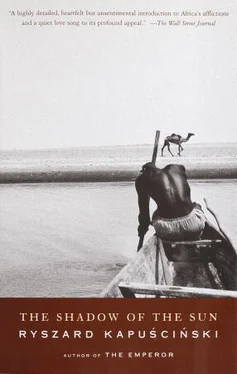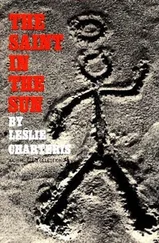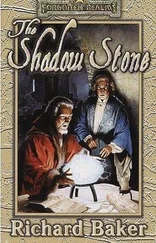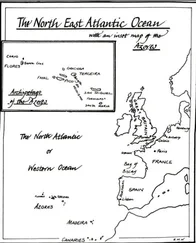And the market itself? It is a place for commerce, but also a meeting place, an escape from the monotony of everyday life, a social event. Going to the market, women first painstakingly arrange each other’s hairdos and put on their best attire. Shopping is accompanied by a fashion show — discreet, unwitting, improvised. If you look at what many of these women are selling or buying, it is difficult to resist the impression that the merchandise is merely a pretext for establishing or maintaining contacts with others. Here is a woman selling three tomatoes. Or several ears of corn. Or a little pot of rice. What profit does she make from this? What can she buy with it? And yet she sits in the market all day. Let us observe her carefully. She sits and talks nonstop with her neighbors, arguing about something, watching the passing crowds, voicing her opinions, making comments. Hungry, she and her friends all swap the products and dishes they had brought to sell, and eat them on the spot. I once observed a fish market in Mopti. Some two hundred women were sitting in a small, sandy square, in the scorching heat. Each had several small fish for sale. I didn’t see anyone who seemed in the least interested in purchasing them, anyone who so much as looked at them, or asked the price. And yet these women were content, chatting, engaged in loud debate, preoccupied with themselves, oblivious to their surroundings. If a customer had appeared, I thought, he would have met with displeasure, for he would have spoiled their fun.
A great marketplace is a huge crowd, a crush. People are pressing on one another, pushing, shoving. As far as the eye can see, an ocean of black heads, as if identically sculpted in basalt, and bright, colorful clothes.
And then trucks drive into all this. They are distributing merchandise. So that no one is run over or killed, there are established rules of conduct governing the trucks’ motion. First, the truck drives a meter into the crowd. It advances slowly, centimeter by centimeter, a little at a time. The women standing or sitting in its path gather their goods into baskets, bowls, and aprons, and, pushing those standing or sitting behind them, wordlessly and obediently move out of the fender’s way, only to return to their places a second later, like waves cut by the prow of a ship.
The African market is a great repository of everything and anything. A veritable mine of the cheap and the shoddy. A mountain of rubbish, gimcrack, and kitsch. There is nothing of any value to a Westerner here, nothing to catch your attention, arouse your admiration, tempt you to possess it. At one end are stacks of identical red and yellow buckets and bowls; at the other, billowing piles of thousands of identical undershirts and sneakers; someplace else still, pyramids of multicolored calicos and glittering rows of nylon dresses and men’s jackets. Only in such a place can one fully appreciate the extent to which the world is swamped with material tenth-rateness, how it is drowning in an ocean of camp, knockoffs, the tasteless and the worthless.
Finally, an opportunity presented itself to go to Onitsha. Now, sitting in the car, I tried to imagine how everything there must look, my mind monstrously multiplying images of markets I had seen, blowing them up many times over until they had attained the proportions of the largest marketplace in the world. My driver was called Omenka and belonged to the shrewd and crafty people raised among the riches of the local oil fields, people who know what money is and exactly how to extract it from their passengers. On the day we first met, I gave him nothing as we parted. He walked away without so much as a good-bye. I dislike cold, formal relations between people and I felt bad. So the next time I gave him 50 naira (the local currency). He said good-bye, and even smiled. Encouraged, I gave him 100 naira the following time. He said good-bye, smiled, and shook my hand. At the subsequent parting, I gave him 150 naira. He said good-bye, smiled, wished me well, and warmly shook my hand, grasping it in both of his. The next time I raised the rate again and paid him 200 naira. He said good-bye, smiled, shook and squeezed my hand, asked me to pay his respects to my family, and with concern in his voice inquired after my health. Without stretching this story out any longer, suffice it to say that I ended up showering him with so many naira that we were simply unable to part. Omenka’s voice was always trembling with emotion, and with tears in his eyes he would swear his everlasting devotion and fidelity.
I had what I wanted, and more: tenderness, warmth, goodwill.
And so Omenka and I were now driving to Onitsha, north from the Bight of Benin, passing the little towns of Aba, Owerri, and Ihiala. The countryside in these parts is invariably green, malarial, humid, populated. Some people work extracting oil, some cultivate little fields of manioc and cassava, others collect and sell coconuts, still others manufacture moonshine out of bananas and millet. But everybody trades. In Africa, the division into farmers and shepherds, soldiers and office workers, tailors and mechanics exists and is very real, but something else is more important, something they all have in common and which unites them: they all trade.
One of the differences between African and European societies is the latter’s division of labor: specialization, strictly defined expertise, professionalism. These principles are only marginally in effect in Africa. Here, especially these days, one must try one’s hand at dozens of occupations and do many things, most frequently not for long and — alas! — not too thoroughly. In any event, it is difficult to find anyone who has not had a brush with Africa’s prime life force and passion: the exchange of goods.
And the market in Onitsha is where all the roads and paths of mercantile Africa converge.
I was also fascinated by Onitsha because it is the only market I know of that has spawned its own literature, the Onitsha Market Literature. Dozens of Nigerian writers live and work in Onitsha and are published by as many local publishing houses, which have their own printing presses and bookshops in the marketplace. It is a diverse literature — romances, poems, and plays (the latter staged by the numerous little theatrical companies in the market), folk comedies, farces, and vaudevilles. There are many didactic tales, countless self-help pamphlets, such as “How to Fall in Love?” or “How to Fall Out of Love?” Many little novellas like “Mabel, or Sweet Honey That Has Poured Away,” or “Love Games, and Then Disenchantment.” Everything is meant to move you, to make you weep, and also to offer instruction and disinterested advice. Literature must be useful, believe the authors from Onitsha, and in the market they find a huge audience thirsty for wisdom and vicarious experience. Whoever cannot afford the brochure masterpiece (or simply doesn’t know how to read) can listen to its message for a penny — the admission fee to authors’ readings, which take place often here in the shade of stalls piled high with oranges, yams, or onions.
Several kilometers before Onitsha the road turns in a gentle arc toward town. As we approached, we could see cars already backed up on the arc — a monumental traffic jam — and it was clear we would have to wait, since this was the only road into town from this direction. It is called Oguta Road, and it ends — far, very far, from here — in that famous market. For now, however, we were standing behind several trucks in an immensely long line. A half hour passed, then an hour. The local drivers were obviously familiar with this situation, for they spread out with insouciance in the roadside ditch. But I was in a hurry: I was supposed to return that same day to Port Harcourt, three hundred kilometers away. The road was narrow, two lanes, and our car stood squeezed amid other vehicles with no chance of maneuvering. So I set out on foot alone to investigate the cause of the obstruction. It was hot, at noon of course, so I dragged myself along slowly, one step at a time. Finally, I reached my goal. By now I was already in town; low brick houses covered in rusty corrugated iron stood on both sides of the street, and there were street-level shops. In the shade of wide verandas tailors sat at their sewing machines, women were washing and hanging up laundry. In one spot the street was crowded; there was a noisy, nervous commotion, engines were roaring, you could hear shouting and calling. Once I had pushed myself through the throng I saw an enormous gaping hole in the middle of the street: huge, wide, several meters deep. It had steep, sheer sides, and its bottom was an opaque, muddy pond. The street was so narrow here that you couldn’t go around the hole, and everyone who wanted to drive into town had to descend first into this abyss, plunge into its swampy waters, and then hope that someone, somehow, would pull them out.
Читать дальше












